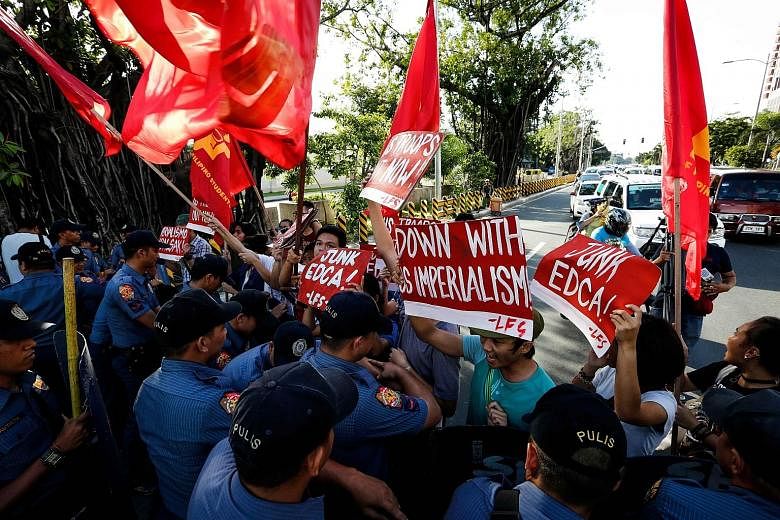President Rodrigo Duterte has said he wants the remaining US special forces in Mindanao to leave to ease tension in the war-torn island group in the southern Philippines.
"Those special forces in Mindanao, they have to go," Mr Duterte said in a speech after swearing in a new group of officials yesterday.
He said the US presence was making the situation in Mindanao - where decades of Islamist secessionist war have left more than 120,000 dead - "more volatile".
He said he had wanted to raise this at the recent Asean summit in Laos, but "I didn't say anything… out of respect... But (the special forces) have to go."
Mr Duterte had insisted at the summit on pursuing an "independent foreign policy".
Spokesman Ernesto Abella said: "The statement reflects (Mr Du- terte's) new direction towards coursing an independent foreign policy."
The Philippine leader said US counter-terrorist operations in Mindanao were stirring resentment among Muslims, especially militants allied with the Islamic State in Iraq and Syria (ISIS), over claimed atrocities by US colonial troops during their efforts to pacify rebellions in the Philippines in the early 1900s.
"They will really kill them (Americans), they will try to kidnap them to get ransom," Mr Duterte said.
As he did at the Asean summit, Mr Duterte again showed images of what appeared to be the "Bud Jao massacre" in 1906, when US troops, in a lopsided battle, overwhelmed a Moro settlement on Jolo Island, killing nearly 1,000 Muslims.
Explaining the reference, Mr Abella said: "The American silence on the matter lacks congruence with its 'moral' position, in the light of actions taken in the past by the Germans, who confessed and made atonement for the Holocaust, and Japan, which made reparations for the atrocities it perpetrated among the peoples they conquered. Mr Duterte is on morally firm ground by breaking up walls that cover dark corners in US-RP relations."
Jolo is now a stronghold of the Abu Sayyaf, a small but brutal group of extremists who have pledged allegiance to ISIS.
Mr Duterte had said he would abide by a 10-year defence pact signed in 2014 that would allow the US to rotate troops in at least five military bases in the Philippines.
None of the bases is in Mindanao, but a special forces unit known as the Joint Special Operations Task Force-Philippines (JSOTF-P) operated there from 2002 to last year. The JSOTF-P originally had 500 personnel. It wrapped up operations last year, but around 30 of its staff remain in the Philippines, mostly to work on intelligence gathering.
Its operations had largely involved training Philippine military and police units fighting the Abu Sayyaf and the Jemaah Islamiah terrorist network , both then affiliated with the Al-Qaeda network.
Last year, its intelligence agents were believed to have participated in an operation to capture Malaysian terrorist Zulkifli bin Hir, alias Marwan, at a remote town in Maguindanao province, Mindanao. Marwan was killed in a raid, but coordination lapses led to the deaths of dozens of police commandos.
For Mr Jose Antonio Custodio, a defence analyst, a withdrawal by US special forces units in Mindanao will have little impact.
"They were already scaling down," he said.

